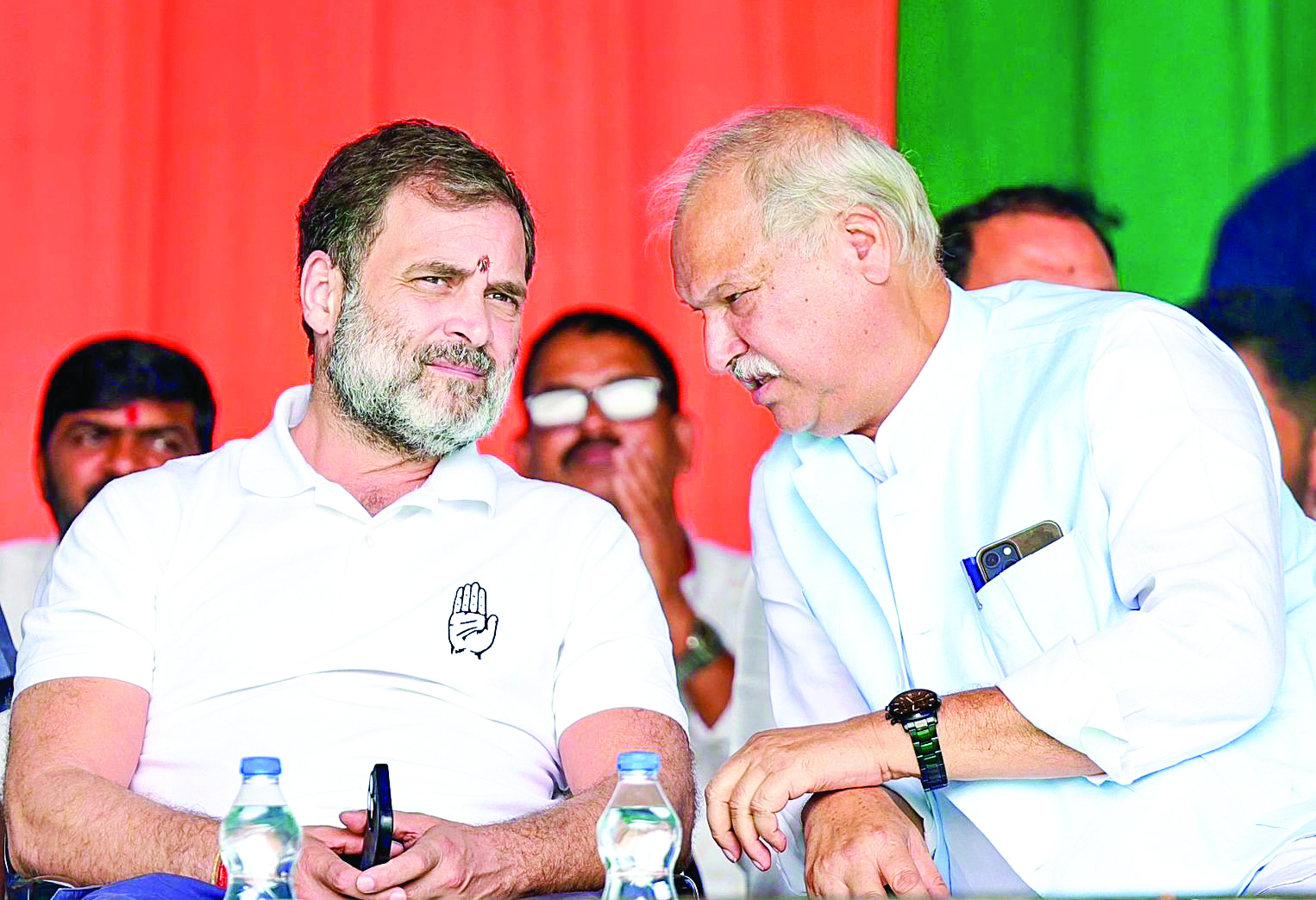Rahul Gandhi’s politics is overshadowed by reliance on Venugopal, as Congress’ defeats and failed momentum hinder progress against BJP.
New Delhi: The upcoming elections in Maharashtra and Jharkhand are pivotal for the political future of Congress and the I.N.D.I. Alliance, as well as a significant test for Rahul Gandhi’s leadership. A loss in either state, particularly in Maharashtra, could have far-reaching consequences for the opposition. Such a setback would threaten the unity of the alliance and reignite internal dissent within Congress. Similar questions about Rahul Gandhi’s leadership emerged following a string of electoral losses in 2022, including the Uttar Pradesh defeat. At that time, a group of 23 senior Congress leaders raised concerns about the party’s direction and decision-making under Rahul’s leadership.
In response, the party convened the Nav Sankalp Sammelan in Udaipur in May 2022, ostensibly for introspection and reform. However, the conference ultimately served to reinforce the Gandhi family’s control. Rajasthan Chief Minister Ashok Gehlot played a key role in ensuring party unity behind the Gandhis, sending a clear message that no one could challenge their authority. Despite lofty resolutions, the party failed to implement substantive changes, leaving its organisational structure stagnant.
The two and a half years since the Udaipur conference have seen little transformation in Congress. Leaders like KC Venugopal continue to wield significant influence, while many from the Group of 23 have either left the party or been sidelined. The Nav Sankalp Sammelan, instead of revitalising Congress, became a means to solidify the Gandhi family’s dominance. Meanwhile, Congress has suffered further setbacks, including losing Rajasthan in November 2024, raising questions about the party’s direction under Mallikarjun Kharge’s presidency.
The failure to act on the Udaipur resolutions has left the party without a robust nationwide structure. If these reforms had been implemented, Congress could have moved past figures like Venugopal and positioned itself as a stronger force. Instead, much like Delhi’s Yamuna River waiting for cleanup after floods, Congress remains stagnant, struggling to address its internal challenges.
Rahul Gandhi’s commitment to politics has been overshadowed by his reliance on leaders like Venugopal, who advocated for the I.N.D.I. Alliance. This coalition aimed to unite various parties under a common banner, focusing on backward-class politics to counter the Bharatiya Janata Party (BJP). However, Congress’s inability to reflect on its defeats, including the 2019 Lok Sabha elections where it secured only 99 seats, has hindered its progress. While Rahul emerged as a prominent opposition leader, the party failed to build on this momentum.
The subsequent loss to BJP in Haryana, just months after the 2019 general elections, further eroded confidence in Congress. This defeat also raised doubts about the stability of the I.N.D.I. Alliance, which is already showing cracks in various states.
As the Maharashtra and Jharkhand elections reach their final stages, the BJP, led by Prime Minister Narendra Modi and Uttar Pradesh Chief Minister Yogi Adityanath, is regaining momentum. The BJP and its affiliate organisations are making a concerted push in both states, highlighting Congress’s challenges in retaining its ground.
A loss in Maharashtra would be catastrophic for Congress, potentially leading to the collapse of the I.N.D.I. Alliance. Such an outcome would place Rahul Gandhi’s leadership under intense scrutiny, forcing him to make tough decisions to safeguard the party from internal power struggles. The influence of Venugopal and his associates may also come under renewed criticism, further intensifying internal dissent.
With elections taking place every year and the 2029 general elections looming, Congress must urgently address its internal divisions. Priyanka Gandhi’s increasing involvement in electoral politics adds another layer of complexity. Her presence may embolden party members to voice their concerns more openly, potentially fueling dissent within Congress.
If Congress fails to secure victories in these elections, it will face mounting challenges in rebuilding its organisational strength and maintaining the unity of the I.N.D.I. Alliance. These elections could mark a turning point for the party and its leadership, with implications that extend far beyond Maharashtra and Jharkhand.

